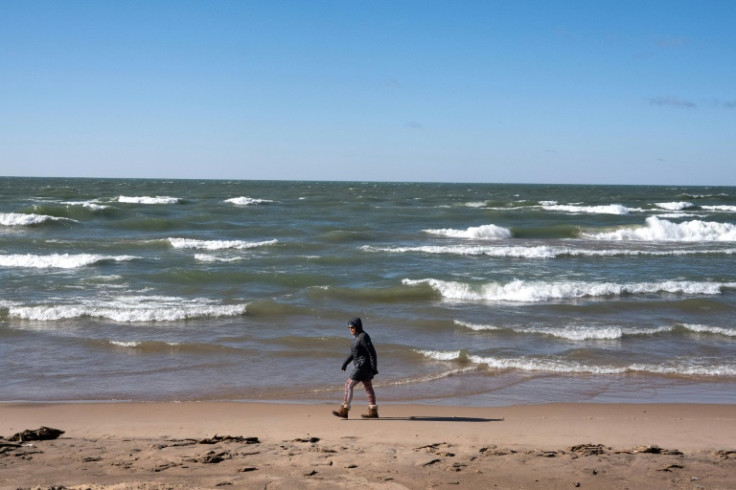
The U.S. has experienced its hottest winter on record, with temperature variations especially evident in the northern part of the country, according to figures from the National Oceanic and Atmospheric Administration and first reported by Axios.
The agency said that some of the states that usually experience the coldest weather during the season -North Dakota, Minnesota, Wisconsin, Iowa, Michigan, New York, among others-- saw record-setting warmth.
This led to only 2,7% ice coverage in the Great Lakes and the Midwest by February 11, the lowest on record for that time of the year.
"A combination of an El Niño event in the tropical Pacific Ocean, human-caused climate change and random weather variability likely contributed to the record warm winter;" Axios explained.
As a whole, the country had an average temperature over 5 degrees Fahrenheit above for the season, beating the winter of 2015-2016, the hottest one on record before this one.
The situation was far from being circumscribed to the U.S., as Earth experienced its warmest February on record this year, according to the Copernicus Climate Change Service. It's the ninth time the planet records its hottest month on record and puts 2024 on track of beat 2023's record warmth.
Overall, the months "global average surface temperature was 1.77°C (3.2°F), warmer than the estimated February average for the pre-industrial era of 1850-1900," the agency's figures showed.
The increasing evidence of the changes provoked by climate change can disproportionately affect Latinos in the U.S., as a recent study by the Hispanic Access Foundation showed that the demographic faces a disproportionately higher risk of flood.
Concretely, 25% of Latinos in the U.S. live in a county that has experienced a federal disaster declaration for flooding in 2023, compared to 10% of non-Latinos who have been through this situation. At a national level, 44% of Latinos live in counties with high flood risks, in contrast with 35% of non-Latinos.
Rather than cold, this winter was marked by mudslides, flooded roadways and power outages in the West Coast, especially in California, as a result of atmospheric river events.
A little further east, Latino voters in Mountain West states consider climate-related issues to be key at the time of deciding whether to support an elected official, according to a poll by the Hispanic Access Foundation.
The poll surveyed the views of voters in Arizona, Colorado, Idaho, Montana, Nevada, New Mexico, Utah, and Wyoming. They were asked about issues regarding public lands, waters and climate change, and most of them showed concern over loss of habitats and declining fish and wildlife populations, inadequate and polluted water supplies, microplastics, uncontrollable wildfires, among others.
Overall, 78 percent of respondents said that the effects of climate change in their state over the past 10 years have been significant, with levels of concern reaching an all-time high in the poll's history.
© 2024 Latin Times. All rights reserved. Do not reproduce without permission.







